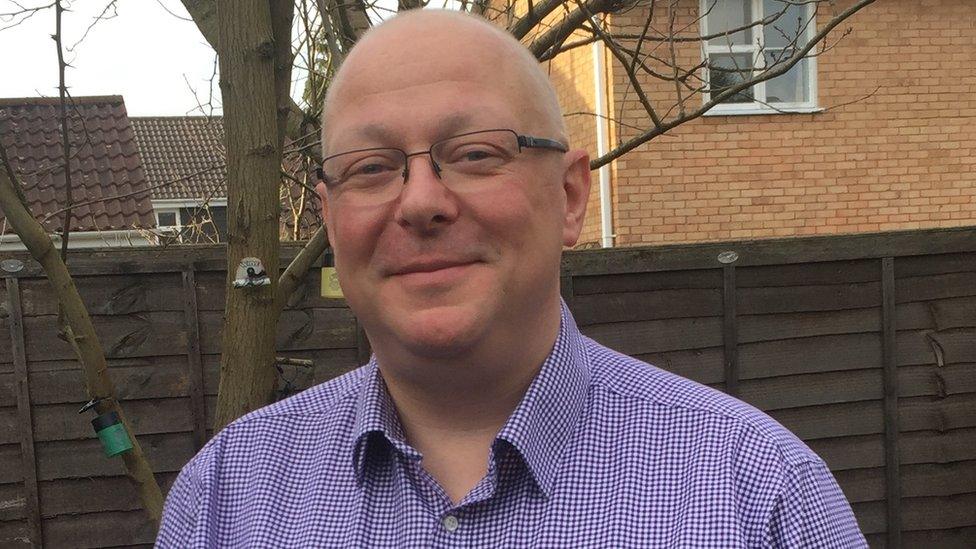I live with MS but I'm not defined by it, says Fran Caunt
- Published
'It felt like I'd burnt my fingertips', says MS sufferer
The country's biggest multiple sclerosis charity has said about three times as many women as men are being diagnosed with the relapsing remitting form of the illness.
MS Society Cymru said scientists do not know why there is such a difference.
They have distinct attacks of symptoms - including fatigue, a loss of balance and vision problems - known as relapses which can then fade away either partially or completely.
The charity said recognising the symptoms and getting fast access to treatments known as disease modifying therapies can reduce the frequency of relapses and how serious they are.
Mother-of-three Fran Caunt, from Cardiff, is a primary school teacher, a sports enthusiast and one of 5,000 people in Wales living with MS.
Here she tells her story:
I started to get pins and needles sensations in my fingers when my first daughter was about seven months old.
I can remember feeling like I had burnt them with a match and I began to struggle to do up the poppers and small buttons of my daughter's babygrows.
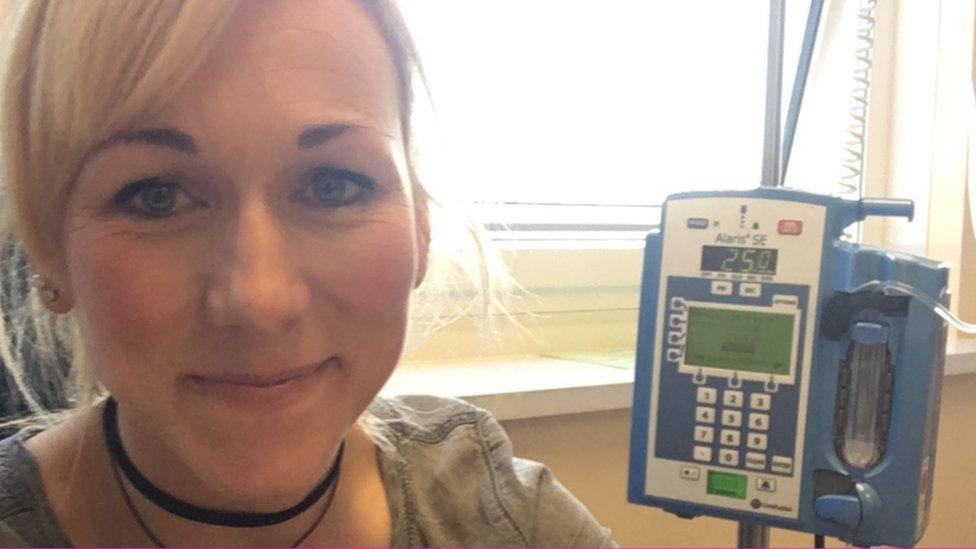
Fran Caunt has had two courses of disease modifying treatment
These symptoms then began presenting themselves in my feet where they just felt numb and a little uncomfortable.
Luckily I have medical parents. My dad is a retired surgeon and my mum a GP, also retired. Even back then in those early stages they probably knew what these symptoms could potentially mean and got me in for an MRI scan pronto.
I was pretty blase about it all thinking why they were acting so shifty about everything, totally unaware of what they must have been thinking.
I was referred across to the neurology team at University Hospital Wales, Cardiff.
Due to my symptoms disappearing by themselves, the consultant explained that they were attributed to a clinically isolated incident. Great, I thought, nothing to worry about.

Fran Caunt playing in the park with son Johny, four, daughters Bronwyn, one, Carys, seven, and husband Dan
For the next two years I got on with life, I gave birth to my second child in September 2013. One day when he was around eight months old I woke up with a grey film or shadow covering my left eye.
I could see fine, it was just grey and less bright. Following an examination I was referred straight to opthamology and then back to neurology where I was told my condition was optic neuritis.
After another MRI scan, various appointments and investigations, I received my diagnosis of relapsing remitting MS on 3 June 2015.
It was pretty crazy and emotional to say the least. Even though I knew full well I had presented with 'common' MS symptoms, and that I'd been investigated for potentially having it, I never thought I actually did have it so it was a huge shock.
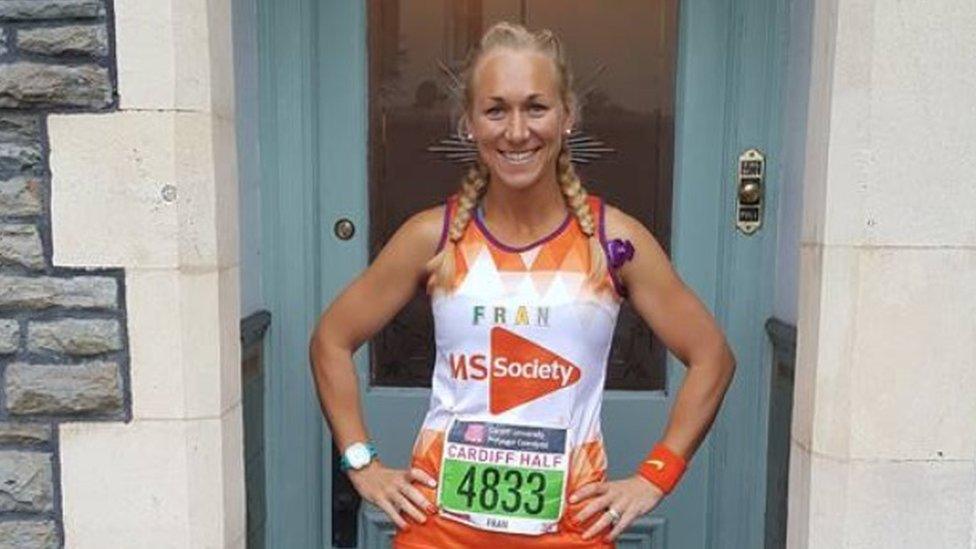
Fran Caunt has taken part in a half marathon since being diagnosed
I remember crying straight away with my husband who was with me in the room. My dad was waiting outside the consultant's room. I shook my head and just broke down hugging both my husband and dad who were also hugging each other.
Thinking back to it now I'm so glad that dad was there and even though it sounds ridiculous it was a lovely moment and a snapshot that I will always remember.
I suddenly just felt that was it, what a horrible thing I was going to have to deal with for the rest of my life, and that my whole life would now have to change.
However even through these initial feelings of worry, fear and uncertainty, I kept thinking about how it could be so much worse.
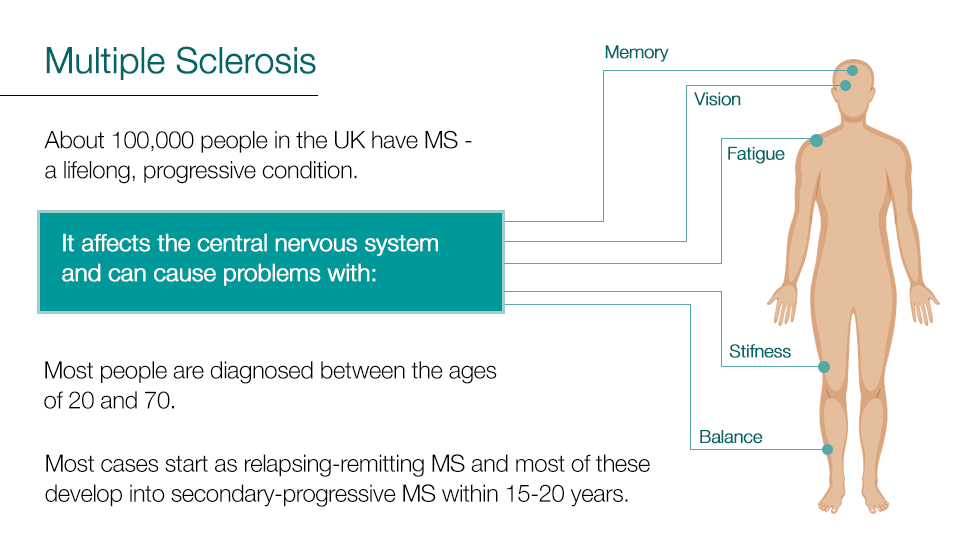
I carried on with everyday life and in June 2016, I gave birth to my third child, another daughter. Life was good.
But at the end of the year was quite shocked that a routine MRI scan revealed my MS was active and I had developed new lesions on my brain.
In January 2017, I began a course of the disease modifying treatment Alemtuzumab which was administered through an infusion drip over five days in hospital.
I had been relapse free since my first treatment and I began training for the half marathon in the spring.
Whilst in hospital for my treatment I decided to write a blog documenting my treatment, the highs, the lows and all the bits in between.
I had my second course of treatment in January and I am so lucky to say I am healthy and relapse free.
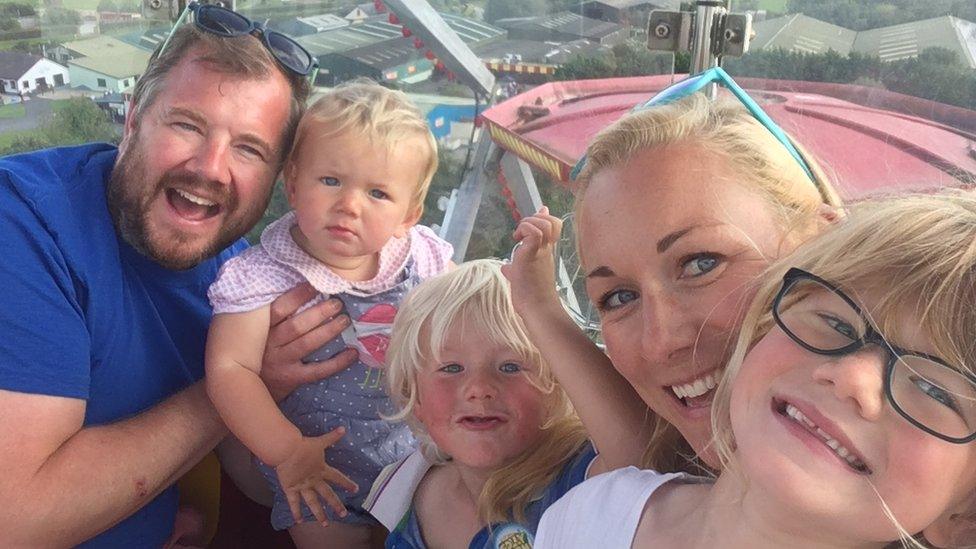
I have even started playing hockey again - first time in five years - and we have had a great season so far. Who knows what is around the corner but I continue to live my life in the most positive way possible.
MS is an extremely complex disease and it can be very difficult to diagnose. It seems that no two cases are the same.
I feel so lucky that I was able to access the treatment I had relatively soon after my diagnosis.
My life is extremely busy caring for three young children, playing sport and enjoying my life with my husband, family and friends. But I'd like to think I would live the way I do with or without MS.
I live with MS but I'm not defined by it. I politely corrected someone the other day. I don't suffer from MS, I just have it."
- Published23 March 2018

- Published18 March 2018
- Published5 December 2017
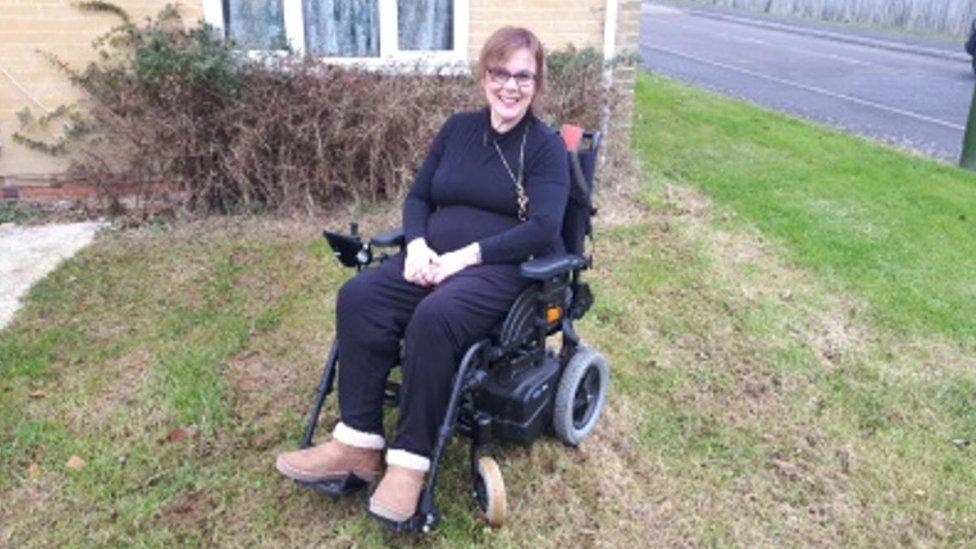
- Published20 February 2017
